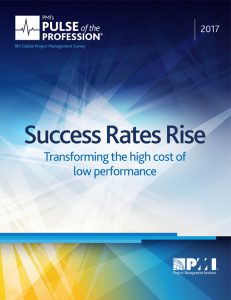 PMI members have already received mail, for all others it is available here: The new PMI Pulse of the Profession Report is out. Again it is constituted that companies with a higher maturity in project management have better and more profitable projects – seems to be no wonder. But different to the preceding years the study for the first time since five years has detected an improvement of meeting project objectives: “Only” 9.7% of the investment sum were “burnt”, that is 20% less than the year before!
PMI members have already received mail, for all others it is available here: The new PMI Pulse of the Profession Report is out. Again it is constituted that companies with a higher maturity in project management have better and more profitable projects – seems to be no wonder. But different to the preceding years the study for the first time since five years has detected an improvement of meeting project objectives: “Only” 9.7% of the investment sum were “burnt”, that is 20% less than the year before!
Consequently the report describes this time less what advantages companies have when taking care of good project management, but focuses the actual benefits that a “champion” with more than 80% of projects conducted to plan (time, cost, quality) has compared to an “underperformer” with less than 60% success rate. That applies specifically at strategic important projects where achieving the intended business goals and savings from better project performance does not only pay back during the project but even more after it with long and sustainable effects.
I wish you much pleasure when reading and many good inspirations for your company and business!

 In Computerwoche Magazine’s issue of 12. June 2012 the authors Marcus Berger (Director EMM Consulting) and Dr. Thomas Henkelmann (Director Consulting Sevices, TPG The Project Group, München) write about Project Portfolio Management (PPM) and the pitfalls which come up for companies without a structured PPM. The article is in German.
In Computerwoche Magazine’s issue of 12. June 2012 the authors Marcus Berger (Director EMM Consulting) and Dr. Thomas Henkelmann (Director Consulting Sevices, TPG The Project Group, München) write about Project Portfolio Management (PPM) and the pitfalls which come up for companies without a structured PPM. The article is in German.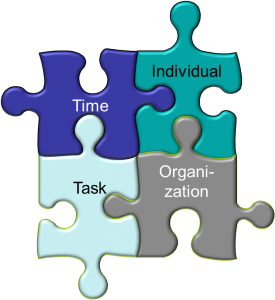 Four major root causes
Four major root causes In one of my case studies (
In one of my case studies ( If you want to lead a project successfully you need, similar as in other professions, a good, methodical education which includes recognizing the specific project situation’s requirements and reasonably applying the adequate tools and techniques situatively and virtuously. That’s at project management like with craftsmanship where you find trainees, advanced and masters.
If you want to lead a project successfully you need, similar as in other professions, a good, methodical education which includes recognizing the specific project situation’s requirements and reasonably applying the adequate tools and techniques situatively and virtuously. That’s at project management like with craftsmanship where you find trainees, advanced and masters. Therefore a good project manager would not have undergone flaws like in our case because he would have taken care for a clear target and task definition from the start, and would have requested his superiors’ support consequently – for the sake of his project and himself. His planning would have based on realistic assumptions, and he would have identified and escalated risks and deviations and initiated counter measures early.
Therefore a good project manager would not have undergone flaws like in our case because he would have taken care for a clear target and task definition from the start, and would have requested his superiors’ support consequently – for the sake of his project and himself. His planning would have based on realistic assumptions, and he would have identified and escalated risks and deviations and initiated counter measures early. To achieve he also needs another skill: leadership qualities. He is his project’s manager, responsible for the result, and he must steer his team and his superiors so that each one contributes his part to the whole. Not an easy task, in particular if the company doesn’t work project affine. And not everybody is the person for a leadership role, feels well in it. But if he takes his job serious he will apply project management including leadership consequently. Otherwise he will soon become a scape goat if the project fails. Not a very motivating perspective, or a subject for opportunistic PM nomads who sometimes call themselves project managers…
To achieve he also needs another skill: leadership qualities. He is his project’s manager, responsible for the result, and he must steer his team and his superiors so that each one contributes his part to the whole. Not an easy task, in particular if the company doesn’t work project affine. And not everybody is the person for a leadership role, feels well in it. But if he takes his job serious he will apply project management including leadership consequently. Otherwise he will soon become a scape goat if the project fails. Not a very motivating perspective, or a subject for opportunistic PM nomads who sometimes call themselves project managers… Another frequent factor for troubled projects is time. I don’t mean the duration granted to the project for execution. This actually should always be sized realistic, not determined by wish thinking or arbitrarily. That means it must be based on realistic estimates done by the executing team members and taking the interdependences and frame conditions into account. Therefore “duration” falls into the category “Individual” for me, i.e. that the project manager does a competent job.
Another frequent factor for troubled projects is time. I don’t mean the duration granted to the project for execution. This actually should always be sized realistic, not determined by wish thinking or arbitrarily. That means it must be based on realistic estimates done by the executing team members and taking the interdependences and frame conditions into account. Therefore “duration” falls into the category “Individual” for me, i.e. that the project manager does a competent job. In fact many statistics, e.g. the one at
In fact many statistics, e.g. the one at 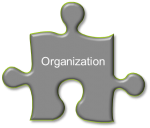 So the predominant part of project issues arises out of an insufficient support from the executing organization, which in turn is founded in the project culture, the management’s and established organization’s mindset.
So the predominant part of project issues arises out of an insufficient support from the executing organization, which in turn is founded in the project culture, the management’s and established organization’s mindset.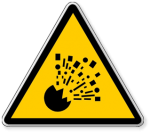

 communication and coordination.
communication and coordination.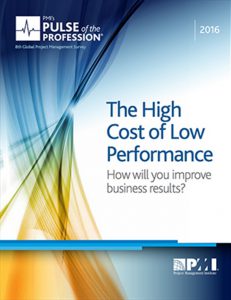 The PMI Pulse of the Profession 2016 (again) shows very clearly and easy to understand why project success, business success and good project management are directly interrelated: projects are 2 ½ times more successful (and profitable) when proven project management practices are used. It bases its argument this time as expected on PMI’s newly introduced Talent Triangle and stresses the necessity of interacting technical project management, leadership, and strategic and business management for corporate success.
The PMI Pulse of the Profession 2016 (again) shows very clearly and easy to understand why project success, business success and good project management are directly interrelated: projects are 2 ½ times more successful (and profitable) when proven project management practices are used. It bases its argument this time as expected on PMI’s newly introduced Talent Triangle and stresses the necessity of interacting technical project management, leadership, and strategic and business management for corporate success. To quickly find effective measures for recovery it takes much experience in rescuing distressed projects: proficient identification of the main reasons and corresponding adequate measures.
To quickly find effective measures for recovery it takes much experience in rescuing distressed projects: proficient identification of the main reasons and corresponding adequate measures.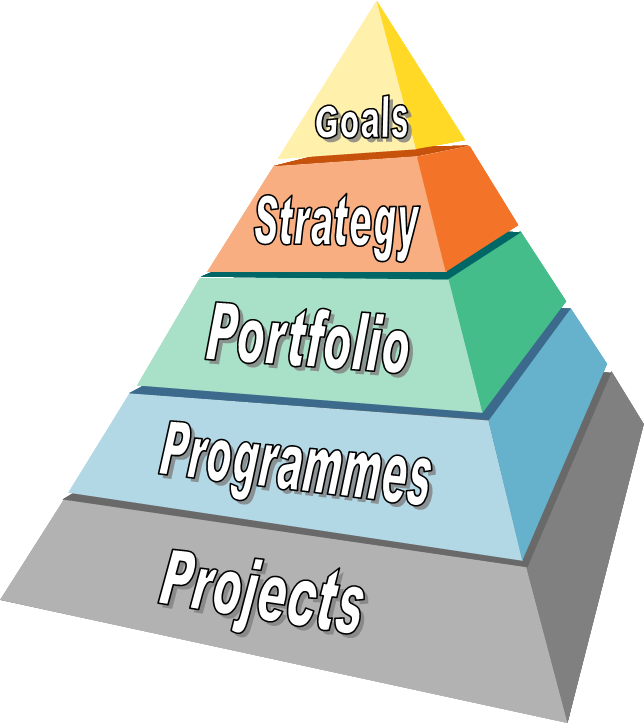
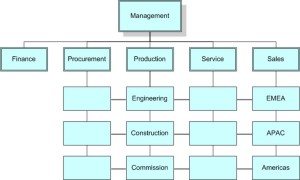 The organization no longer fits to its market
The organization no longer fits to its market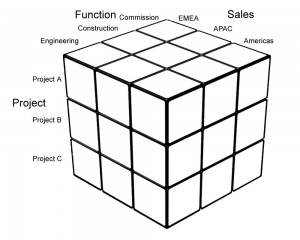 There is only help in a transformation of the organization and corporate culture concerning established hierarchies, responsibilities, compensations, thinking and priorities etc. towards an organization focused on the project business. In a pure line organization this means the change to a matrix “function vs. project”. At an already matrix-organized company it will be the implementation of a third dimension on peer-level to the existing ones. What it takes and what to pay attention to I have described in my article “
There is only help in a transformation of the organization and corporate culture concerning established hierarchies, responsibilities, compensations, thinking and priorities etc. towards an organization focused on the project business. In a pure line organization this means the change to a matrix “function vs. project”. At an already matrix-organized company it will be the implementation of a third dimension on peer-level to the existing ones. What it takes and what to pay attention to I have described in my article “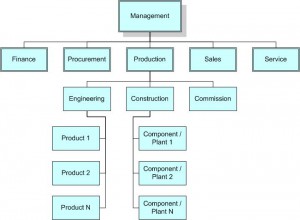 In Europe enterprises typically have an established line organization structure with functional and central departments. This is especially the case in our traditionally strong industries like Mechanical and Plant Engineering and in particular in privately owned, mid-size companies, but also at consulting and IT firms, engineering and development bureaus etc. Often I find a distinctive own life of the departments, production locations or plants with silo thinking, insufficient communication and cooperation. This becomes very evident with cross-functional work in projects.
In Europe enterprises typically have an established line organization structure with functional and central departments. This is especially the case in our traditionally strong industries like Mechanical and Plant Engineering and in particular in privately owned, mid-size companies, but also at consulting and IT firms, engineering and development bureaus etc. Often I find a distinctive own life of the departments, production locations or plants with silo thinking, insufficient communication and cooperation. This becomes very evident with cross-functional work in projects.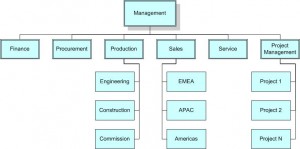 Project management as a core competency and strong department. Quit with functional specialists who lead the projects at the side. Project management needs full attention on planning, coordination and leadership – actually same as with corporate management. Time and objective conflicts of two hearts in the project leader’s chest are poison for concentrating on the essentials. His “thinking” also needs to be project-driven, no longer product love struck. Everybody contributes his core competence, the engineer his functional knowledge, and the project manager his PM skills, for success of the total. Process models and best practices make it replicable and calculable.
Project management as a core competency and strong department. Quit with functional specialists who lead the projects at the side. Project management needs full attention on planning, coordination and leadership – actually same as with corporate management. Time and objective conflicts of two hearts in the project leader’s chest are poison for concentrating on the essentials. His “thinking” also needs to be project-driven, no longer product love struck. Everybody contributes his core competence, the engineer his functional knowledge, and the project manager his PM skills, for success of the total. Process models and best practices make it replicable and calculable.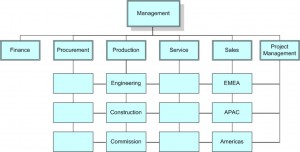 Functional and central departments as service providers for the projects. The previously gone through change in your corporate project culture will help you here. The engineers’ provisions will now not only serve for the product’s perfection but also for the whole task’s delivery to contract. Procurement will not only look at the terms and conditions but also (may be even sometimes with concessions supporting the project targets) at the reliability of delivery. Legal will probe partnership in collaboration; QM controls the project’s product quality and drives process quality (Continuous Improvement). HR will search for skills instead of positions, train for future project requirements, take care for a corporate identity among the employees, etc.
Functional and central departments as service providers for the projects. The previously gone through change in your corporate project culture will help you here. The engineers’ provisions will now not only serve for the product’s perfection but also for the whole task’s delivery to contract. Procurement will not only look at the terms and conditions but also (may be even sometimes with concessions supporting the project targets) at the reliability of delivery. Legal will probe partnership in collaboration; QM controls the project’s product quality and drives process quality (Continuous Improvement). HR will search for skills instead of positions, train for future project requirements, take care for a corporate identity among the employees, etc.